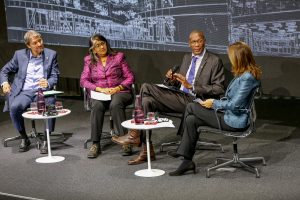
More than 20 professors, researchers and students work directly on SDG 10. Their work includes academic publications, academic and executive education, and engagement in external initiatives. We also offer an Executive Master in Development Policies and Practices, as well as academic Masters and PhD programmes and courses on International Economics.


Release of the IFC Growing Impact Report

Childcare, Labor Supply, and Business Development: Experimental Evidence from Uganda

Mobility in crisis: can global governance get the world moving again?

Linking Trade with Peace at Geneva Trade Week

The Inequality Pandemic: A conversation with Winnie Byanyima

Quo Vadis? Giulia Raimondo, PhD Candidate in International Law at the Graduate Institute

We Are the Nobodies: Youth, violence and drug dealing at the urban margins

Keeping up with Kerala’s Joneses : Relative Deprivation and Conspicuous Consumption among Kerala’s Gulf Emigrants

Financial Inclusion and Development: Learn from AB Bank Zambia!

Catalyst or Hindrance? The link between trade policy & sustainable development

Policy Preferences and Political Behaviour of Citizens at Times of Risk Inequalities
Discover more SDGs
View moreGoal 10 calls for “reducing inequalities in income as well as those based on age, sex, disability, race, ethnicity, origin, religion or economic or other status within a country. The Goal also addresses inequalities among countries, including those related to representation, migration and development assistance” as put by the UN Sustainable Development Knowledge Platform. Read more about Goal 10